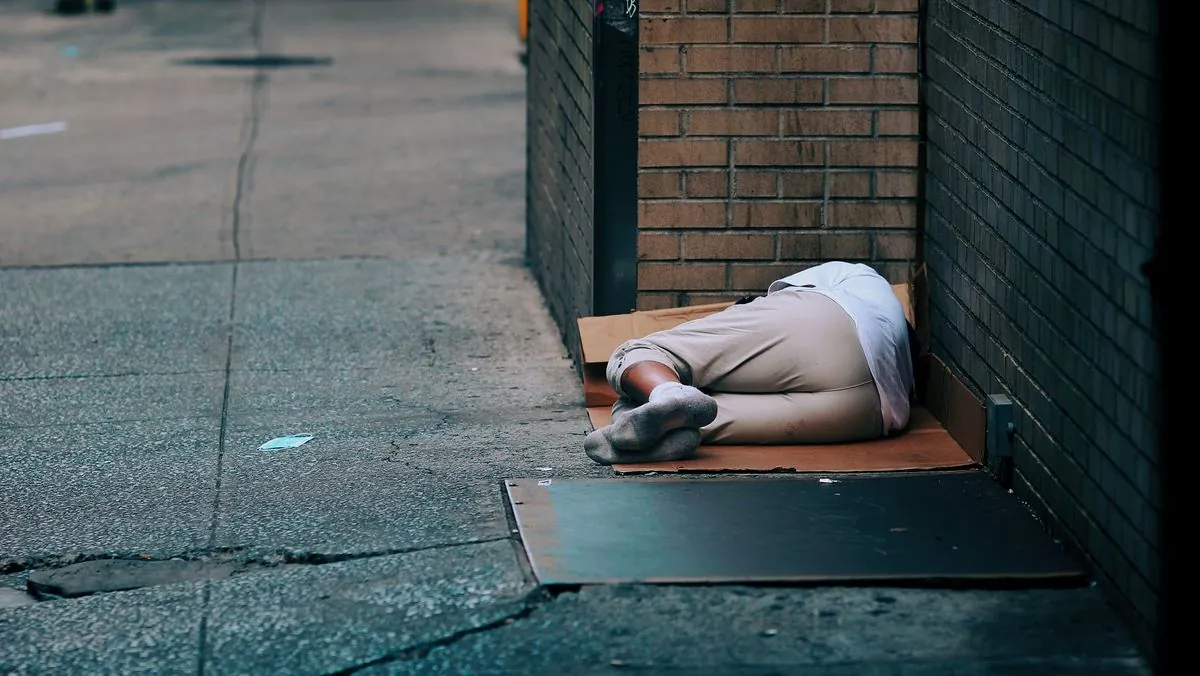Westminster's Homelessness Crisis: A Growing Challenge in the Heart of London
Westminster, home to UK's government, faces a surge in rough sleeping. Despite being one of London's wealthiest boroughs, it grapples with rising homelessness, reflecting broader societal issues and policy challenges.

In the shadow of the Houses of Parliament, Westminster faces a growing homelessness crisis. Despite being one of London's wealthiest boroughs, it has become the epicenter of rough sleeping in the UK, highlighting the complex interplay of social, economic, and policy challenges.
Recent data from the Combined Homelessness and Information Network (Chain) reveals a stark reality. Between April and June 2024, Westminster recorded 752 rough sleepers, a 39% increase from the previous year. This surge is part of a broader trend across London, where the number of people sleeping rough hit a record 11,993 in the year to March 2024, 58% higher than in 2015.
The factors contributing to this crisis are multifaceted. Mental health issues affect 51% of rough sleepers in Westminster, while substance abuse problems are prevalent among a significant portion. The borough's central location and tourist attractions make it a magnet for those seeking opportunities or safety in numbers.
"In a strange way, you're part of a community."
The profile of homelessness in Westminster is diverse. UK nationals make up 43% of rough sleepers, with European, African, and Asian nationals also represented. The recent influx of refugees, many evicted by the Home Office after being granted asylum, has further complicated the situation.

The housing crisis underpins much of the homelessness problem. A national slump in social housebuilding, coupled with the sale of council homes through Right to Buy, has led to a significant reduction in affordable housing options. The proportion of social rent homes in England fell from 29% to 16% over the past 50 years.
Despite the challenges, Westminster offers a range of services for rough sleepers. St Mungo's provides nightly outreach, while the council offers short-term accommodation with support. Local charities like The Connection provide essential services such as showers, meals, and healthcare.
Drug addiction remains a significant hurdle for many rough sleepers. Outreach workers report an increase in the use of synthetic opiates like nitazenes, which pose a higher risk of overdose. The homeless community is often targeted by organized drug gangs, exacerbating the cycle of addiction and homelessness.
The business community in Westminster grapples with the daily impact of homelessness. The Heart of London Business Alliance (Holba) manages clean-up operations, but frustration grows among businesses paying high rates while facing ongoing challenges.
The government acknowledges the severity of the situation, with a spokesperson calling it "nothing short of a national scandal." Proposed measures include rental reform and efforts to increase social and affordable housing. However, critics argue that these solutions may take decades to have a significant impact.
As Westminster continues to face this complex crisis, it's clear that a comprehensive, cross-departmental approach is needed. The experiences of individuals like Sebastian, who overcame addiction to become a support worker, highlight both the challenges and the potential for positive change. However, without addressing the root causes of homelessness, including housing affordability, mental health support, and substance abuse treatment, the streets of Westminster may continue to reflect the broader societal issues facing the UK.


































